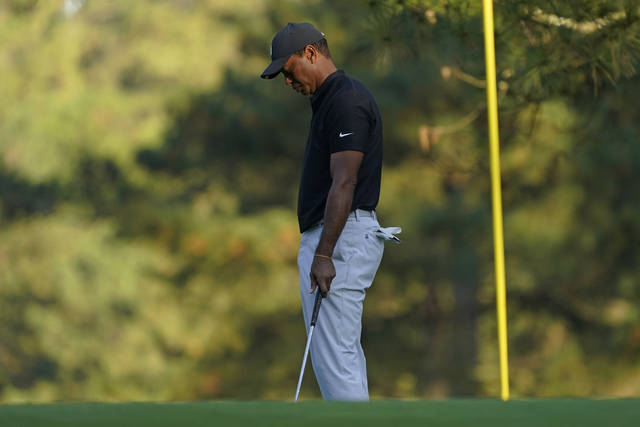https://development.triblive.com/sports/mark-madden-sports-consumers-dwindling-during-pandemic/
Mark Madden: Sports consumers dwindling during pandemic

The final round of the Masters bombed on TV. Its rating was the lowest since 1957, down 51% from last year when Tiger Woods won, but also down 57% from 2018.
Because of the pandemic, the Masters took place in November and not in April as it usually does. It was up against the NFL for the first time.
That justifies a drop but not by 51%.
The Masters is not alone in experiencing Nielsen disappointment: The World Series, NBA Finals, Stanley Cup Final, U.S. Open golf tournament and the Triple Crown horse races all nosedived horribly.
Only the NFL seems mostly immune: Ratings have dropped 6% but, since the season began, 26 of the top 30-rated programs have been NFL games. Pro football gets propped up by gambling and fantasy leagues.
Why are fewer people watching sports?
Live attendance at games is very limited. Being at home (in front of your TV) seems an easier option than ever. But ratings are still rotten.
At one point, all four major sports played at once. Did that saturation hurt? What about the perceived preponderance of social justice propaganda? That wasn’t prevalent during Masters telecasts. Does lack of fans on-site create a lame atmosphere for TV? Maybe election hype stole minds and viewers. How much does streaming affect, or cord-cutting? Did consumers get used to other entertainment options during the four months without sports?
The numbers don’t lie. Why doesn’t matter. Moving forward does.
Are we headed for sports dystopia? Will sports ever truly recover from the pandemic? Will a covid vaccine put spectators back in stadiums, or are they too comfortable with not going? When a sizable percentage declines the vaccine, what effect will that have? Did four months off allow the addicted to kick the habit? Will “Brockmire” play out in real life?
Sports have been a made-for-TV product since the pandemic hit. Given how big network contracts are for the NFL, NBA and MLB, that could continue indefinitely. But declining revenues mean declining salaries. How easily would the athletes swallow that? (Hockey needs ticket revenue. The NHL could get contracted significantly by the pandemic.)
What happens to stadiums, especially those built by taxpayers?
Sports felt funereal on too many occasions even before covid.
Mass media and social media have done damage. Nothing happens quietly. Nothing is left for us to notice on our own. Nothing gets let go. It all encourages obsession. Obsession isn’t healthy unless you make money from it. Encouraging obsession can chase away casual fans.
We know all the athletes’ flaws and self-absorption. We don’t need to, but we do. I couldn’t support a team that employs, say, Antonio Brown.
Athletes are fairly paid within the financial context of their sports but are wealthy beyond our imagination. They can’t be imagined as one of us. Does that make interest drop?
Sports can survive on TV. It’s all too easy to not go. But games are best enjoyed live. Has that been lost? It’s cliched to say that so-called “real” fans have been priced out, but perhaps they have. Has being financially exiled from live games caused some to ignore sports, period?
Home-team loyalty has diminished. You can see any team you want play every game, not just the local franchises. At Pittsburgh sporting events, it’s not uncommon to see local residents, especially kids, wearing opposition jerseys. (That doesn’t often happen at Steelers games. When it does, such traitors tend to not make too much noise.)
All games take too long. Televised games are packed with commercials. Every single moment is somehow exploited.
Maybe the reason less watch sports is because sports mostly stink. That might be an old man longing for the good old days.
But they do seem better, especially right now.
Copyright ©2026— Trib Total Media, LLC (TribLIVE.com)
